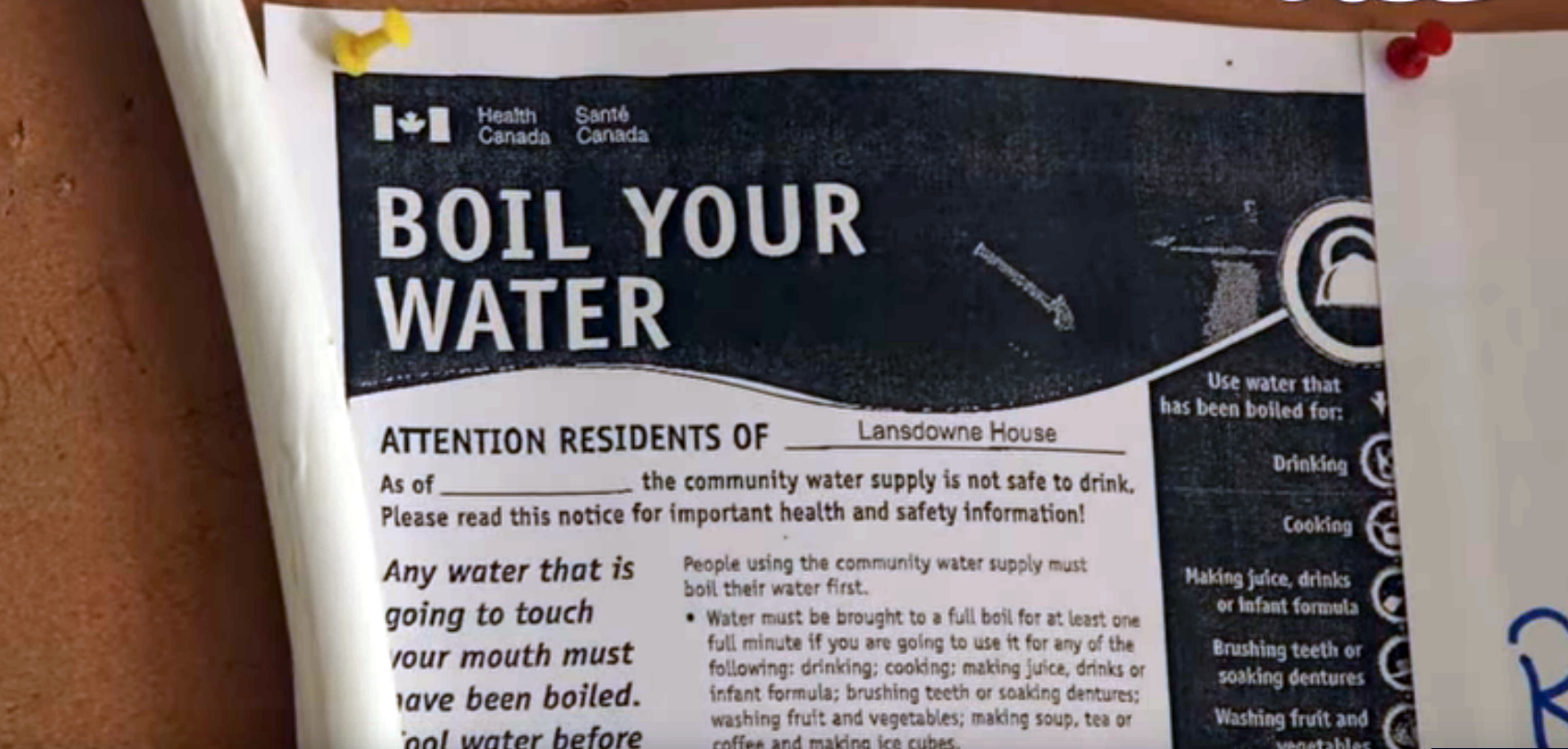Neskantaga First Nation Fires Contractor Tasked With Fixing Water Treatment Plant

Credit to Author: Hilary Beaumont| Date: Thu, 14 Feb 2019 20:48:04 +0000
Highly-anticipated upgrades to a water treatment plant for the First Nation that holds the record for Canada’s longest-running drinking water advisory have hit a wall.
Wayne Moonias, chief of Neskantaga First Nation in northern Ontario—which hasn’t had clean tap water in 25 years—announced Wednesday he had fired the contractor that was upgrading the community’s water plant, Kingdom Construction Limited (KCL). Moonias did not respond to calls and an email from VICE News on Thursday.
The plant was supposed to be ready by March. But reporters on a press tour of the community this week tweeted photos showing the incomplete water plant, including unfinished duct work, wooden beams that were the beginnings of a wall, a fire suppression system that wasn’t hooked up, and pipes covered in blankets and a tarp to keep the water from freezing.
The halted construction is a blow to community members, who get rashes from bathing in the water, and have to trek to a reverse-osmosis machine to fill jugs of drinking water.
In an election year, it’s also a blow to Prime Minister Justin Trudeau’s commitment to end all long-term water advisories on First Nations in Canada within five years. He is now more than three years into that promise. Two ministers in charge of solving the crisis have been shuffled in that time. In mid-January, Seamus O’Regan replaced Jane Philpott as Indigenous services minister.
In July 2017, Indigenous Services Canada (ISC) announced $8.8 million in funding to upgrade Neskantaga’s plant. ISC had said upgrades would be finished by “late spring 2018,” but changed the estimated delivery time to late March 2019.
“We were supposed to complete this back in the spring of 2018 and it’s already winter 2019,” Moonias told CBC on Thursday, without blaming KCL for the delay. “The main issue right now is we want safe, clean drinking water in the community.”
In November, Moonias told CBC that KCL had “wasted two months last year” because they said the First Nation didn’t have adequate equipment. The community’s cement mixer didn’t work, CBC reported, and it took three weeks to deliver a cement mixer, which had to be taken apart and flown in.
In 2017, during our VICE News annual water fact-check, a water operator with 20 years of experience working in northern Ontario First Nations singled out Kingdom Construction Limited as a construction company he has had issues with in the past. He did not want his name published.
He went on to say that any one contractor isn’t to blame; the problem is the bidding process that encourages First Nations’ governance to go with the lowest bidder. Speaking generally, the water operator said that some companies will give a low bid for a contract, and when they’re hired they’ll use poor materials and won’t provide tools or lab equipment. He added that it’s hard to convince contractors to maintain existing plants.
In a statement to VICE News on Thursday, O’Regan’s office said officials “are currently engaged with the community to determine the present status of the project and confirm the path forward.”
Indigenous Services told VICE News it is aware that the chief and council terminated its contract with KCL, but said the First Nation is responsible for procurement of contracts. ISC declined to comment on why the contractor was let go.
Neskantaga gave ISC a “high level action plan” on Wednesday, ISC said, and the department met with the First Nation on Thursday to decide next steps.
VICE News asked Indigenous Services Canada if any First Nations had reported problems with KCL to them. They would not answer the question.
VICE News called KCL operations manager Gordon Heslop and sent him an email with questions. He did not respond by deadline.
Last October, a VICE News fact-check found that although the government claimed to have solved water advisories in 50 First Nations, five communities on the list said the government had not solved their water problems. Four other communities said although they did have clean water, their systems were vulnerable due to faulty equipment or lack of government funding. Four more said natural disasters like floods, storms, fires or mudslides were ongoing threats to their drinking water.
“It is unacceptable that chronic underfunding for on-reserve infrastructure has left First Nations like Neskantaga without access to clean drinking water for more than 20 years,” O’Regan’s office said in its statement to VICE News. “Our government is firmly committed to working with the community to complete work on their water infrastructure and bring clean drinking water to the people of Neskantaga.”
Follow Hilary on Twitter.